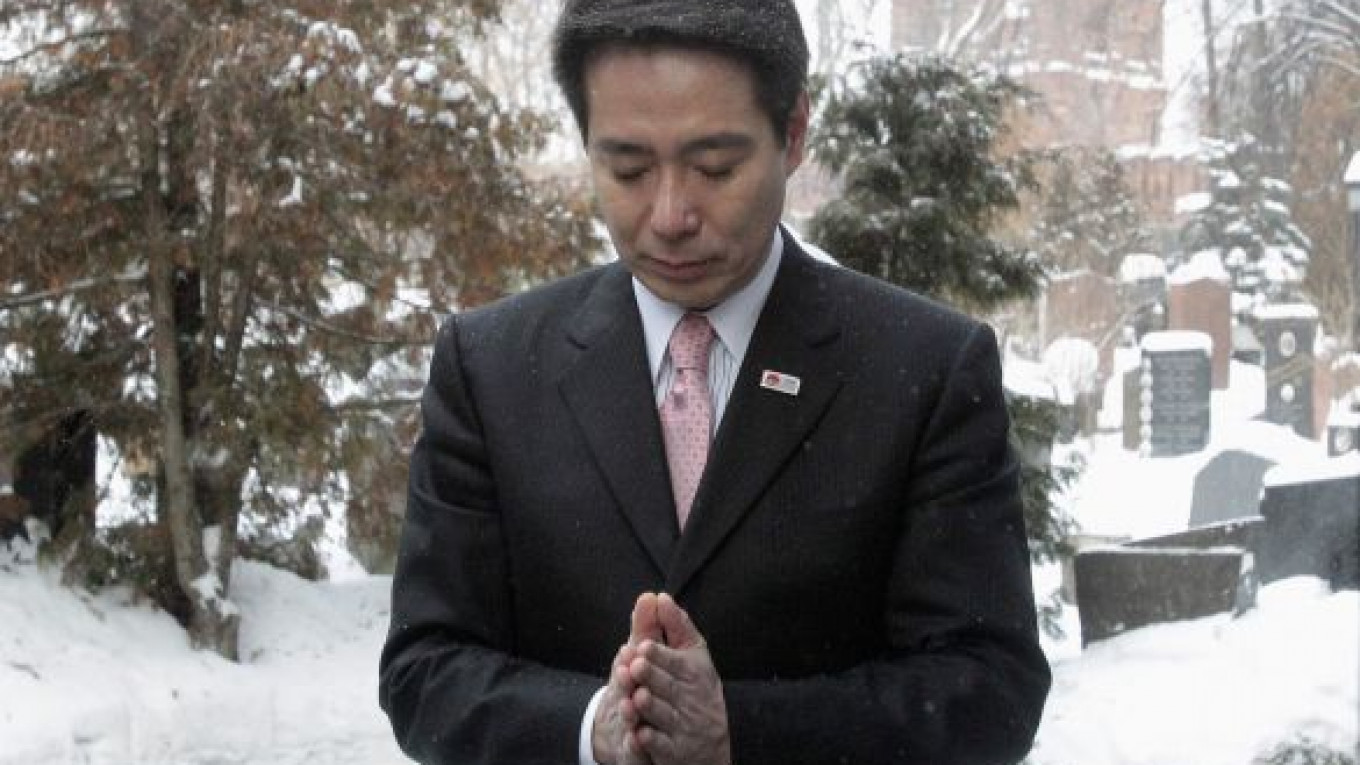Russia and Japan crossed swords publicly on Friday over Moscow's invitation for China and South Korea to invest in an island chain at the center of a dispute that has poisoned ties for half a century.
The disagreement came during a visit to Moscow by Japanese Foreign Minister Seiji Maehara, which brought the two nations no closer to resolving their dispute over islands that Russia calls the southern Kurils and Japan calls the Northern Territories.
Tensions have escalated since November, when Russian President Dmitry Medvedev made the first visit by a Kremlin leader to the small, windswept and sparsely populated islands off Japan's Hokkaido, 7,000 kilometers from Moscow.
At a joint news conference after talks with Maehara, Russian Foreign Minister Sergei Lavrov said the Kremlin would be happy to see Chinese, Korean and even Japanese investment in the islands, which Moscow has held since 1945.
Maehara quipped back that investments in the islands from "a third country" would "complicate the situation."
He also gave a chilly response to Lavrov's call for a committee of historians to weigh in on the territorial dispute, saying previous discussions by specialists had brought little in the way of results.
Soviet troops occupied the four islands at the southern tip of the Kuril chain at the end of World War II. The conflicting claims have prevented Moscow and Tokyo from concluding a peace treaty.
Lavrov said Tokyo's recent behavior in the dispute was "unacceptable" and made clear that vocal Japanese demands for the return of the isles would only hurt its cause.
Last Monday, marked with rallies and speeches in Japan as Northern Territories Day, Japanese Prime Minister Naoto Kan called Medvedev's trip "an unforgivable outrage."
Lavrov warned that statements like that would get Japan nowhere.
"When radical approaches gain the upper hand in Japan and are shared by the country's leadership, of course, it is useless to conduct any discussion on this issue," he said after the talks with Maehara at a Foreign Ministry mansion in Moscow.
Russia will only discuss a peace treaty without any preconditions or "unilateral historical links," Lavrov said, a reference to Japan's claim that the islands are rightfully its own.
Maehara reiterated Japan's claim.
"The Northern Territories are indigenous territories of Japan," he said through an interpreter.
Sitting down for the talks, he said Moscow and Tokyo should try to find a way to overcome the dispute.
"There is a territorial problem between Russia and Japan, but we should rack our brains to overcome it," he said.
Moscow has pointedly asserted sovereignty over the islands by dispatching high-level officials there since Medvedev's visit, which added to Japan's troubles amid a dispute with fast-growing powerhouse China over another group of islands.
Japan's anger flared again when Russia's defense chief visited military units on the islands last week, and Medvedev said Wednesday that Moscow will deploy new weapons to step up defenses there.
Lavrov stressed, as Russia has repeatedly, that Tokyo should focus not on the islands but on improving trade ties with Russia.
"We have a common interest in and a real opportunity to seriously strengthen the economic foundation [of relations]," Lavrov said.
A Message from The Moscow Times:
Dear readers,
We are facing unprecedented challenges. Russia's Prosecutor General's Office has designated The Moscow Times as an "undesirable" organization, criminalizing our work and putting our staff at risk of prosecution. This follows our earlier unjust labeling as a "foreign agent."
These actions are direct attempts to silence independent journalism in Russia. The authorities claim our work "discredits the decisions of the Russian leadership." We see things differently: we strive to provide accurate, unbiased reporting on Russia.
We, the journalists of The Moscow Times, refuse to be silenced. But to continue our work, we need your help.
Your support, no matter how small, makes a world of difference. If you can, please support us monthly starting from just $2. It's quick to set up, and every contribution makes a significant impact.
By supporting The Moscow Times, you're defending open, independent journalism in the face of repression. Thank you for standing with us.
Remind me later.






